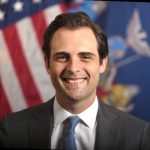The Benjamin H. Griswold III, Class of 1933, Center for Economic Policy Studies fosters communication among members of the academic, business, and government communities. The Non-Resident Fellows program in the Griswold Center for Economic Policy Studies (GCEPS) supports distinguished visitors who can enhance the intellectual and academic life in the Department of Economics through their research and collaboration with faculty and students.
Distinguished Visitors, 2025-2026
 Michael D. Bordo is an emeritus Board of Governors Professor of Economics, an emeritus Distinguished Professor of Economics, and a former director of the Center for Monetary and Financial History at Rutgers University. Currently, he is a distinguished visitor at the Griswold Center for Economic Policy Studies at Princeton University; and the Ilene and Martin Harris Distinguished Visiting Fellow at the Hoover Institution at Stanford University. He has held previous academic positions at the University of South Carolina and Carleton University. He has been a visiting professor at UCLA, Carnegie Mellon University, Lund University, the Stockholm School of Economics, the Paris School of Economics, the London School of Economics, Princeton University, Harvard University, and Cambridge University, where he was Pitt Professor of American History and Institutions. Bordo has been a visiting scholar at the International Monetary Fund, The Federal Reserve Banks of St. Louis, Cleveland and Dallas, the Federal Reserve Board of Governors, the Bank of Canada, the Bank of England, the Banque de France, Norges Bank, the Riksbank, the Banca D’Italia, and the Bank for International Settlements. Bordo is a research associate of the National Bureau of Economic Research. He is also a member of the Shadow Open Market Committee. He has a BA degree from McGill University, an MSc in economics from the London School of Economics, and a PhD from the University of Chicago. He has published many articles in leading scholarly journals and 27 books on monetary economics and monetary history. He is editor of a series of books for Cambridge University Press: Studies in Macroeconomic History.
Michael D. Bordo is an emeritus Board of Governors Professor of Economics, an emeritus Distinguished Professor of Economics, and a former director of the Center for Monetary and Financial History at Rutgers University. Currently, he is a distinguished visitor at the Griswold Center for Economic Policy Studies at Princeton University; and the Ilene and Martin Harris Distinguished Visiting Fellow at the Hoover Institution at Stanford University. He has held previous academic positions at the University of South Carolina and Carleton University. He has been a visiting professor at UCLA, Carnegie Mellon University, Lund University, the Stockholm School of Economics, the Paris School of Economics, the London School of Economics, Princeton University, Harvard University, and Cambridge University, where he was Pitt Professor of American History and Institutions. Bordo has been a visiting scholar at the International Monetary Fund, The Federal Reserve Banks of St. Louis, Cleveland and Dallas, the Federal Reserve Board of Governors, the Bank of Canada, the Bank of England, the Banque de France, Norges Bank, the Riksbank, the Banca D’Italia, and the Bank for International Settlements. Bordo is a research associate of the National Bureau of Economic Research. He is also a member of the Shadow Open Market Committee. He has a BA degree from McGill University, an MSc in economics from the London School of Economics, and a PhD from the University of Chicago. He has published many articles in leading scholarly journals and 27 books on monetary economics and monetary history. He is editor of a series of books for Cambridge University Press: Studies in Macroeconomic History.
 Michael R. Schmidt is a distinguished visitor at the Griswold Center for Economic Policy Studies at Princeton University. From September 2022 to January 2025, Schmidt served as the inaugural director of the CHIPS Program Office (CPO) at the U.S. Department of Commerce, where he led the implementation of a $39 billion federal initiative to incentivize semiconductor manufacturing in the United States. Under his leadership, the office executed 20 final award agreements totaling $34 billion, unlocking more than $450 billion in total investment in U.S. chip production. Before joining the commerce department, Schmidt led the U.S. Department of the Treasury’s implementation of the expanded Child Tax Credit under the American Rescue Plan, which delivered monthly payments to over 37 million families and lifted more than 3 million children out of poverty. He previously served as commissioner of the New York State Department of Taxation and Finance, overseeing the state’s tax system and the collection of more than $100 billion in annual revenue; and as deputy secretary for economic development for the State of New York, where he directed policy and operations across 12 state agencies and authorities. Earlier in his career, he held roles in the Office of Domestic Finance at the U.S. Department of the Treasury, and as a financial analyst at the Yale Investments Office. Schmidt holds a BA in history and a JD, both from Yale University. Current research focuses on developing a principled framework for when industrial policy interventions are justified to advance U.S. national security. Drawing on his experience leading the CPO, he seeks to move beyond ad hoc interventions by clarifying the conditions under which government action is warranted. His goal is to articulate a framework that is both analytically rigorous and practically useful for policymakers. Schmidt also examines how U.S. industrial strategy can align with those of allies and partners to support a more coherent global approach.
Michael R. Schmidt is a distinguished visitor at the Griswold Center for Economic Policy Studies at Princeton University. From September 2022 to January 2025, Schmidt served as the inaugural director of the CHIPS Program Office (CPO) at the U.S. Department of Commerce, where he led the implementation of a $39 billion federal initiative to incentivize semiconductor manufacturing in the United States. Under his leadership, the office executed 20 final award agreements totaling $34 billion, unlocking more than $450 billion in total investment in U.S. chip production. Before joining the commerce department, Schmidt led the U.S. Department of the Treasury’s implementation of the expanded Child Tax Credit under the American Rescue Plan, which delivered monthly payments to over 37 million families and lifted more than 3 million children out of poverty. He previously served as commissioner of the New York State Department of Taxation and Finance, overseeing the state’s tax system and the collection of more than $100 billion in annual revenue; and as deputy secretary for economic development for the State of New York, where he directed policy and operations across 12 state agencies and authorities. Earlier in his career, he held roles in the Office of Domestic Finance at the U.S. Department of the Treasury, and as a financial analyst at the Yale Investments Office. Schmidt holds a BA in history and a JD, both from Yale University. Current research focuses on developing a principled framework for when industrial policy interventions are justified to advance U.S. national security. Drawing on his experience leading the CPO, he seeks to move beyond ad hoc interventions by clarifying the conditions under which government action is warranted. His goal is to articulate a framework that is both analytically rigorous and practically useful for policymakers. Schmidt also examines how U.S. industrial strategy can align with those of allies and partners to support a more coherent global approach.
